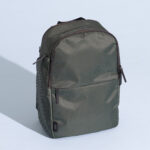Traveling to Australia from the United States requires careful preparation, and understanding the visa requirements is paramount. While US citizens enjoy certain travel privileges, securing the correct Australian visa is crucial for a smooth entry and enjoyable stay. This guide provides essential information on Australian visas for US citizens, along with important travel advice to ensure a safe and lawful trip.
Navigating international travel can be complex, especially when it comes to visas and local regulations. For US citizens planning a trip Down Under, it’s vital to be well-informed about the necessary documentation and laws to avoid any unforeseen issues. Australia, with its stunning landscapes and vibrant cities, is a popular destination, and this guide aims to equip you with the knowledge you need for a hassle-free experience.
Understanding Australian Visa Options for US Citizens
For tourism or short business trips, US citizens can typically apply for an eVisitor visa or an Electronic Travel Authority (ETA). These visas are electronically linked to your passport and allow multiple entries to Australia within a 12-month period, for stays of up to three months at a time. It’s important to apply for your visa well in advance of your travel dates to allow for processing time. Ensure your passport is valid for the duration of your stay and has sufficient blank pages for entry and exit stamps.
For longer stays, work, or study purposes, different visa categories apply. These may include:
- Working Holiday Visa (subclass 417 or 462): For young adults aged 18 to 30 (or 35 for some nationalities) who wish to work and travel in Australia for up to a year.
- Student Visa (subclass 500): For those intending to study in Australia at a registered educational institution.
- Temporary Skill Shortage Visa (subclass 482): For skilled workers sponsored by an Australian employer.
- Partner Visa (subclasses 820 and 801 or 309 and 100): For individuals in a relationship with an Australian citizen, permanent resident, or eligible New Zealand citizen.
It is crucial to visit the official website of the Australian Department of Home Affairs to determine the most appropriate visa for your specific travel purpose and to understand the detailed application requirements and processes.
Australian Laws and Regulations: What US Citizens Need to Know
While enjoying your Australian adventure, it’s essential to respect and abide by local laws. Unfamiliarity with these laws is not an excuse, and violations can lead to serious consequences, including fines, arrest, imprisonment, or deportation.
Criminal Penalties: Australia’s legal system is distinct from the US system. Actions that may be permissible or minor offenses in the US can carry significant penalties in Australia. Be aware of the following:
- Photography Restrictions: Photographing certain buildings, including areas within airports, prisons, and military installations, is prohibited.
- Extraterritorial Jurisdiction: Some Australian laws may also be prosecutable in the United States, particularly those concerning crimes against minors. Refer to the U.S. Department of Justice website for more information on international crimes.
Alcohol and Drugs: Australia enforces strict laws regarding alcohol and drug use.
- Drug Offenses: Penalties for drug possession, use, or trafficking are severe, potentially resulting in lengthy jail sentences and substantial fines. Consult Australia’s Department of Health webpage for detailed drug laws.
- Driving Under the Influence: Driving under the influence of alcohol is a serious offense that can lead to imprisonment. Random breath testing by police is common throughout Australia.
Arrest Notification: If you are arrested or detained, it is vital to request that the police or prison officials immediately notify the U.S. Embassy or Consulate. The U.S. Embassy can provide assistance to US citizens arrested abroad.
Health and Biosecurity: Australia maintains stringent biosecurity measures to protect its unique environment.
- Health Screening: In the event of a public health emergency, such as a communicable disease outbreak, travelers arriving in Australia may undergo strict health screenings, including testing and potential quarantine.
- Customs and Quarantine: Australian customs authorities have rigorous regulations concerning the import of goods, particularly agricultural products, plants, food items, and wood products. Quarantine standards for animals and pets are also exceptionally strict. Consult the “Can you bring it in?” resource on the Australian Border Force website and the Department of Agriculture website for comprehensive details before packing.
Natural Disasters and Safety: Australia is prone to natural disasters.
- Bushfires, Floods, and Storms: Be aware of the risks of bushfires, floods, and severe storms, which can be unpredictable and dangerous. Monitor local weather reports and heed safety warnings to ensure your safety during such events. The U.S. State Department’s webpage on crisis and disaster preparedness offers valuable guidance.
Outdoor and Wildlife Safety: Australia’s unique wildlife presents both wonder and potential hazards.
- Dangerous Fauna: Australian wildlife, including jellyfish, crocodiles, sharks, venomous insects, and snakes, can be dangerous. Exercise caution and respect for wildlife in both terrestrial and aquatic environments. Refer to the Wet Tropics Management Authority visitor information guide for insights on Australian wildlife safety.
- Water Safety: When swimming, always choose patrolled beaches and swim between the designated flags where lifeguards are present. Never swim alone. Surf Life Saving Australia provides extensive beach safety information. Exercise caution when snorkeling and scuba diving, and never dive alone, as numerous incidents occur each year.
Travelers with Specific Concerns:
- LGBTQ+ Travelers: Australia has no legal restrictions on same-sex sexual relations and prohibits discrimination based on sexual orientation. Same-sex marriage is legal in Australia, and same-sex partners of Australian citizens are eligible for visas.
- Travelers Requiring Accessibility Assistance: Australia has laws prohibiting discrimination based on disability and aims to provide accessibility to premises, facilities, and accommodations. However, accessibility can vary, particularly in older city areas and natural tourist spots. Many venues provide accessibility information online.
- Students: US students planning to study in Australia should consult the U.S. State Department’s Students Abroad page and the FBI’s travel tips for students.
- Women Travelers: Women travelers can find helpful safety and travel tips on the U.S. State Department’s Women Travelers page.
Conclusion
Planning a trip to Australia from the US involves more than just booking flights and accommodation. Understanding the Australian travel visa requirements for US citizens, along with being informed about local laws, safety precautions, and cultural considerations, is crucial for a successful and enjoyable journey. By being prepared and informed, you can confidently explore the beauty and wonder of Australia while ensuring your safety and compliance with regulations. Always refer to official government websites for the most up-to-date information and guidance before your travel.


